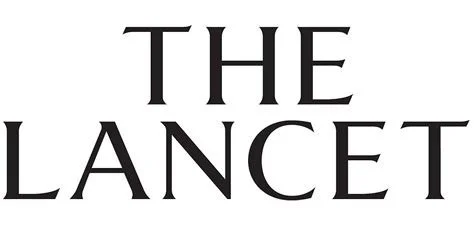The LANCET Commission on Disability & Health
The Lancet is a weekly peer-reviewed general medical journal, founded in England in 1823. It is one of the world's highest-impact academic journals and also one of the oldest medical journals still in publication
Impact Factor: According to Journal Citation Reports, the journal had a 2024 impact factor of 88.5, ranking it first above The New England Journal of Medicine in the category "Medicine, General & Internal". According to BMJ Open in 2017, The Lancet was more frequently cited in general newspapers around the world than The BMJ, NEJM and JAMA.
The Lancet Commission on Disability and Health: Creating Disability-inclusive Health Systems That Leave No One Behind
Urgent and decisive action is needed to address the 14-year life expectancy gap between people with and people without disabilities. However, disability is generally a low priority for governments and global health funders across the world, with little dedicated funding or attention. This new Lancet Commission—the first focused on disability and health—will generate action-oriented evidence to make the case to global health actors as to why and how to include people with disabilities in health systems.
Our recommendations will be relevant to governments, UN agencies, international donors, non-governmental organizations, healthcare workers, the private sector, academics, and people with disabilities and their representative organizations.
HELEN: The Journal of Human Exceptionality is proud to announce that Editor-in-chief Dr. Rick Rader has been invited to be a member of the Advisory Board of the Lancet Commission on Disability and Health.
Disability and Health Commission
Universal Health Coverage (UHC) is impossible to achieve without disability inclusion, since:
There are 1.3 billion people with disabilities globally, equating to 16% of the population.
People with disabilities experience more than double the mortality rate of others in the population, as well as higher prevalence of a range of morbidities (e.g. HIV, diabetes, malnutrition).
Widespread barriers make it difficult for people with disabilities to access healthcare (e.g. inaccessible equipment and facilities, lack of knowledge of healthcare workers).
Healthcare received by people with disabilities is often at higher cost and lower quality.
Health systems therefore need to be strengthened to address these inequities, and to achieve the right to health for people with disabilities. Improvements are needed across the health system, including building accessible infrastructure, establishing inclusive policies, training healthcare workers on disability, and providing rehabilitation services and assistive Technology. However, disability remains a low priority in health systems.
This Commission will address fundamental evidence gaps in four key areas to inform a disability-inclusive health agenda and help achieve UHC. These include the following:
Describing health inequalities experienced by people with disabilities summarizing existing data and generating new data points and analytical approaches;
Identifying evidenced-based interventions to improve access to healthcare and close the outcome gaps for people with disabilities;
Exploring the political economy to understand why disability remains a low priority for governments and funders and identify potential levers for change;
Unpacking economic implications of disability-inclusion in the health system, considering the cost and financing of inclusive care, as well as their benefits.
We will strive to produce a Commission that contributes to the creation of health systems that work better for people with disabilities, to truly achieve health for all.



